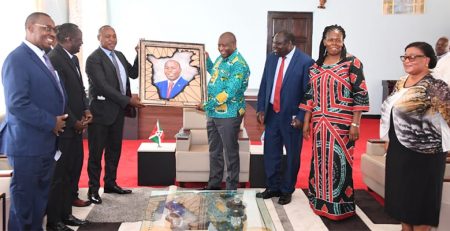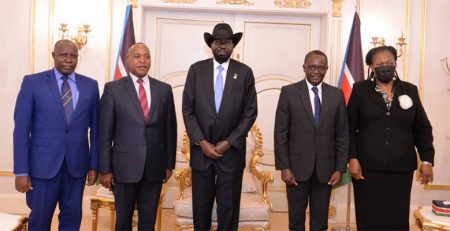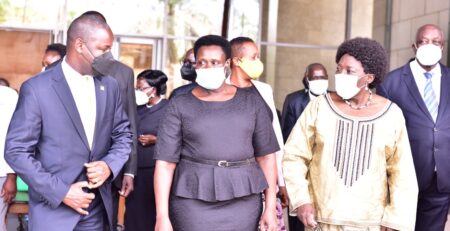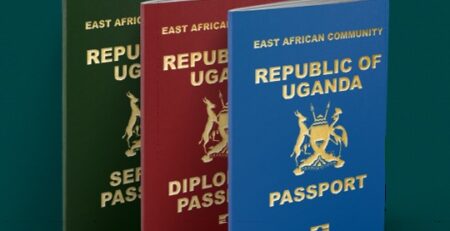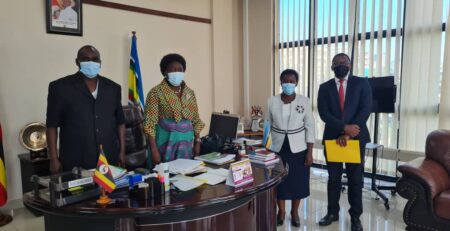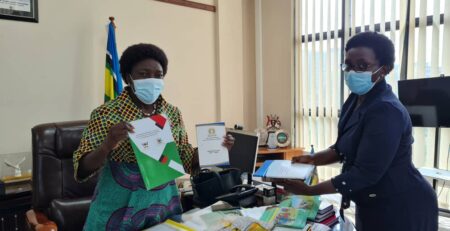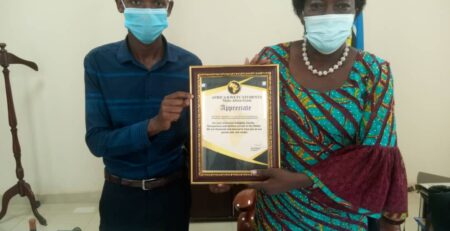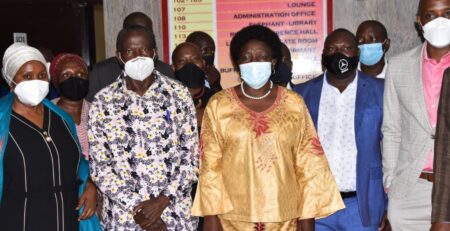Importance and Challenges of the East African Judicial Conferences: A Spotlight on Rwanda.
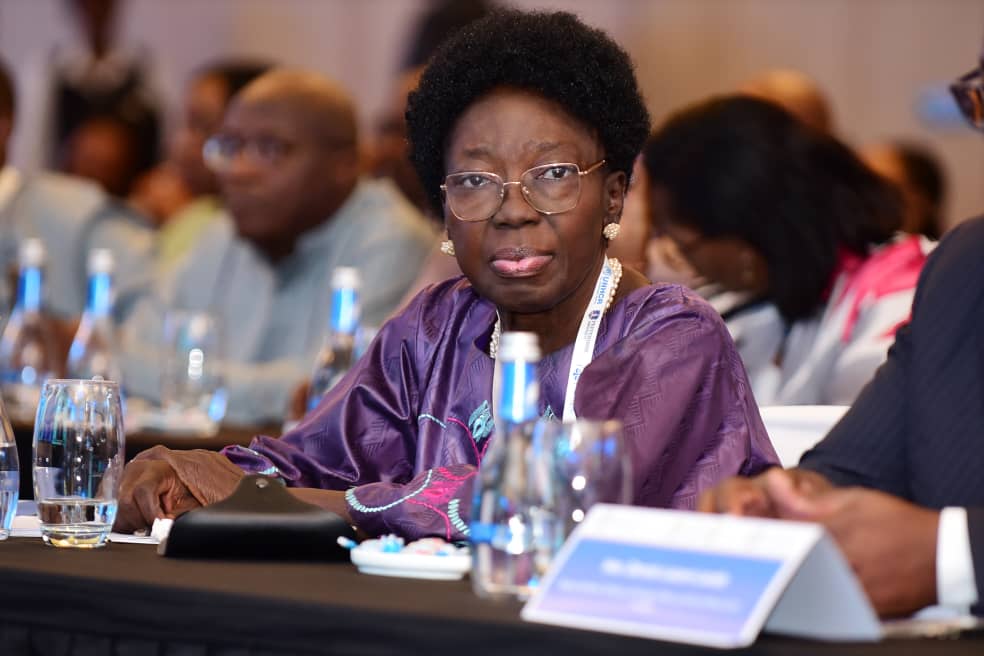
Rt.Hon Rebecca Kadaga at the 3rd annual East African Court of Justice Judicial Conference -Kigali
Bishop Samuel
On invitation from the East African Court of Justice (EACJ), the 1st Deputy Prime Minister and Minister for East African Community Affairs, Rt. Hon. Rebecca Kadaga participated in the sessions and made several policy proposals at the 3rd Annual EACJ Judicial Conference. Hosted in the magnificent capital city of Kigali, Rwanda, the two-day conference took place from February 18th to 19th, 2025, under the theme: “Justice, Ethics, and Enforcement of Decisions.” Unlike previous judicial conferences, this year’s event saw substantial attendance from East African Community (EAC) ministers, East African Legislative Assembly members, various judicial bodies within the EAC, and development partners.
The EACJ Judicial Conference was a bustling program featuring multiple sessions with participation from academia, magistrates, judges, and development partners. Panel discussions, presentations, and Q&A sessions covered diverse topics such as cross-border trade, the implementation and enforcement of EACJ decisions by domestic courts, and the controversial issue of litigating human rights before the EACJ, which garnered significant engagement from the audience. Noteworthy participants included Rt—Hon—Rebecca Kadaga and the Attorney General of Uganda, Kiryowa Kiwanuka.
In her closing remarks, Rt. Hon. Chief Justice of Rwanda, Domitilla Mukantaganzwa, urged the delegates to carry the momentum of this gathering back to their respective roles with renewed dedication. She emphasized the importance of upholding integrity, impartiality, and accountability within the judicial system. She also reminded attendees that as guardians of justice, their roles extend beyond interpreting laws to actively promoting ethical conduct, equality, and human dignity. Together, they can build a region where justice prevails for all.
Uganda was well represented by the Chief Justice of Uganda, Justice Alfonse Chigamoy Owiny-Dollo, the 1st Deputy Prime Minister and Minister for EAC Uganda, Rt. Hon. Rebecca Kadaga, and the Attorney General of Uganda, Kiryowa Kiwanuka. The Permanent Secretary of the Ministry of EAC Uganda was represented by the Commissioner of Social Affairs, Mr. Sebina Edward.
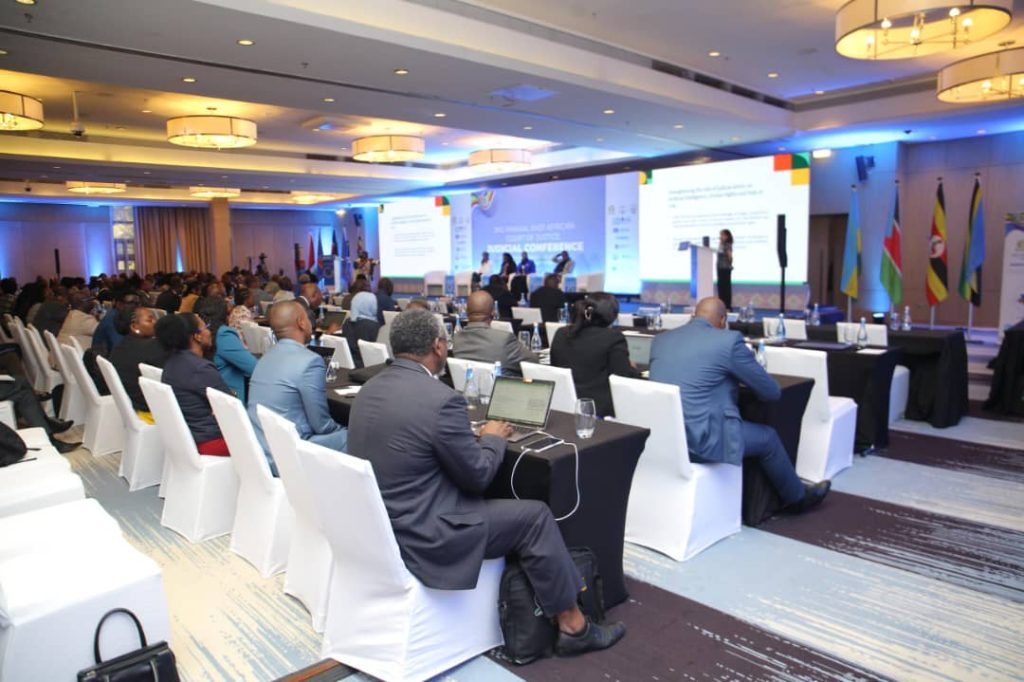
Participants at the 3rd East African Judicial Conference in Kigali, Rwanda
Importance of Annual EACJ Judicial Conferences
The annual judicial conferences of the East African Court of Justice play a critical role in fostering collaboration, sharing best practices, and addressing pressing issues within the judicial systems of the EAC member states. These conferences provide a platform for continuous dialogue on legal and judicial matters, ensuring the harmonization of laws and the effective enforcement of EACJ decisions. By meeting annually, the judicial organs can assess progress, identify challenges, and develop strategies to overcome them, ultimately strengthening the rule of law in the region.
Challenges Faced by the Judicial Organ of the East African Community
Despite the progress made, the judicial organ of the EAC faces several challenges. One of the primary challenges is the inconsistent implementation and enforcement of EACJ decisions by domestic courts, which can hinder the effectiveness of the regional justice system. Additionally, there are difficulties in litigating human rights issues, as these often involve complex legal, political, and social dynamics. Limited resources and varying levels of judicial capacity across member states further exacerbate these challenges, making it essential for continuous capacity-building initiatives and regional cooperation.
Spotlight on Rwanda
Rwanda joined the East African Community on July 1st, 2007. As of 2025, Rwanda has a population of approximately 13 million people. The country is admired for its remarkable strides in economic development, healthcare, education, and gender equality. Rwanda’s capital, Kigali, is often praised for its cleanliness, safety, and progressive urban development. The current president of Rwanda is Paul Kagame, who has been in office since 2000 and is widely recognized for his leadership in transforming Rwanda into a model of stability and growth in the region.
By continuing to host and actively participate in events like the EACJ Judicial Conference, Rwanda demonstrates its commitment to regional integration and the promotion of justice, ethics, and good governance within the East African Community.
END

